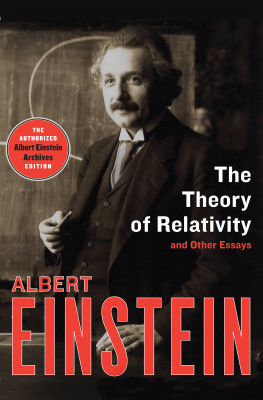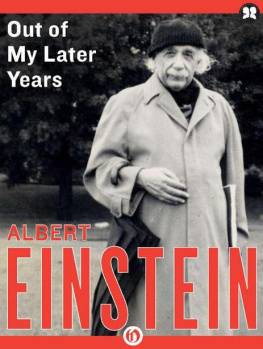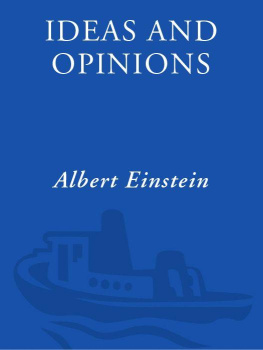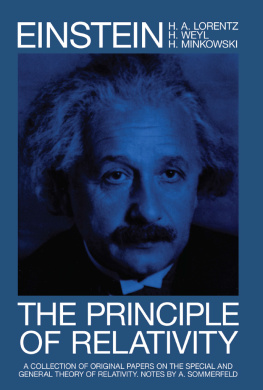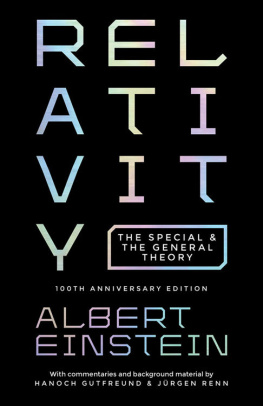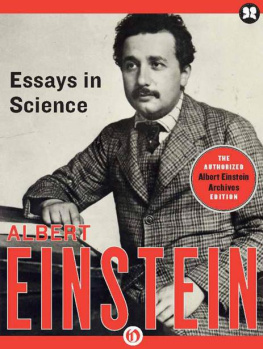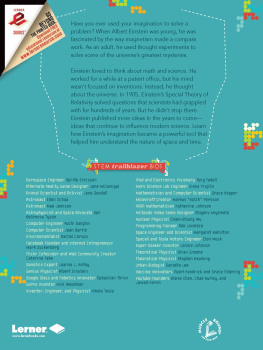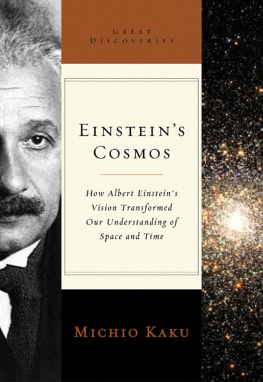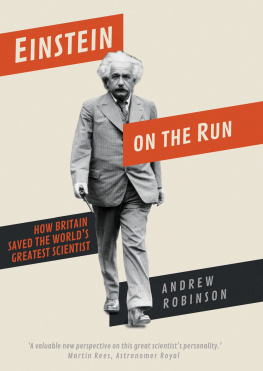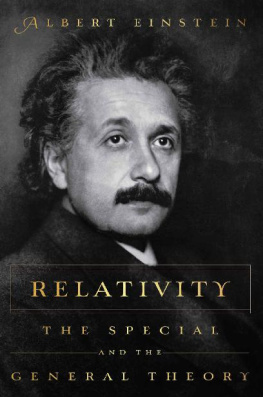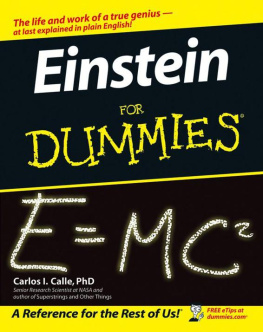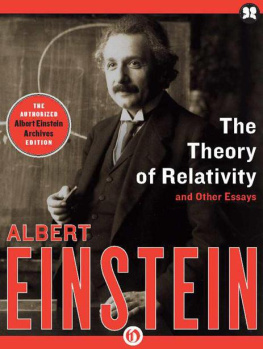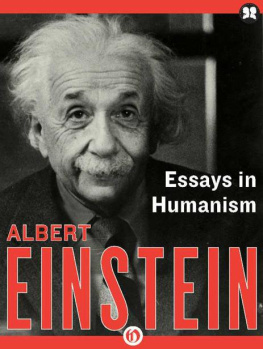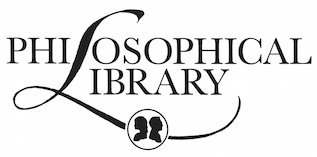Albert Einstein - The Albert Einstein Collection Volume One: Essays in Humanism, The Theory of Relativity, and The World As I See It
Here you can read online Albert Einstein - The Albert Einstein Collection Volume One: Essays in Humanism, The Theory of Relativity, and The World As I See It full text of the book (entire story) in english for free. Download pdf and epub, get meaning, cover and reviews about this ebook. year: 2016, publisher: Philosophical Library/Open Road, genre: Science. Description of the work, (preface) as well as reviews are available. Best literature library LitArk.com created for fans of good reading and offers a wide selection of genres:
Romance novel
Science fiction
Adventure
Detective
Science
History
Home and family
Prose
Art
Politics
Computer
Non-fiction
Religion
Business
Children
Humor
Choose a favorite category and find really read worthwhile books. Enjoy immersion in the world of imagination, feel the emotions of the characters or learn something new for yourself, make an fascinating discovery.
- Book:The Albert Einstein Collection Volume One: Essays in Humanism, The Theory of Relativity, and The World As I See It
- Author:
- Publisher:Philosophical Library/Open Road
- Genre:
- Year:2016
- Rating:4 / 5
- Favourites:Add to favourites
- Your mark:
The Albert Einstein Collection Volume One: Essays in Humanism, The Theory of Relativity, and The World As I See It: summary, description and annotation
We offer to read an annotation, description, summary or preface (depends on what the author of the book "The Albert Einstein Collection Volume One: Essays in Humanism, The Theory of Relativity, and The World As I See It" wrote himself). If you haven't found the necessary information about the book — write in the comments, we will try to find it.
A century after his theory of general relativity shook the foundations of the scientific world, Albert Einsteins name is still synonymous with genius. This collection is an introduction to one of the worlds greatest minds.
Essays in Humanism
Nuclear proliferation, Zionism, and the global economy are just a few of the insightful and surprisingly prescient topics scientist Albert Einstein discusses in this volume of collected essays from between 1931 and 1950. With a clear voice and a thoughtful perspective on the effects of science, economics, and politics in daily life, Einsteins essays provide an intriguing view inside the mind of a genius as he addresses the philosophical challenges presented during the turbulence of the Great Depression, World War II, and the dawn of the Cold War.
The Theory of Relativity and Other Essays
E=mc2 may be Einsteins most well-known contribution to modern science. Now, on the one-hundredth anniversary of the theory of general relativity, discover the thought process behind this famous equation. In this collection of his seven most important essays on physics, Einstein guides his reader through the many layers of scientific theory that formed a starting point for his discoveries. By both supporting and refuting the theories and scientific efforts of his predecessors, he reveals the origins and meaning of such significant topics as physics and reality, the fundamentals of theoretical physics, the common language of science, the laws of science and of ethics, and an elementary derivation of the equivalence of mass and energy. This remarkable collection, authorized by the Albert Einstein archives, allows the non-scientist to understand not only the significance of Einsteins masterpiece, but also the brilliant mind behind it.
The World As I See It
Authorized by the Albert Einstein Archives, this is a fascinating collection of observations about life, religion, nationalism, and a host of personal topics that engaged the intellect of one of the worlds greatest minds. In the aftermath of World War I, Einstein writes about his hopes for the League of Nations, his feelings as a German citizen about the growing anti-Semitism and nationalism of his country, and his opinions about the current affairs of his day. In addition to these political perspectives, The World As I See It reveals the idealistic, spiritual, and witty side of this great intellectual as he approaches topics including Good and Evil, Religion and Science, Active Pacifism, Christianity and Judaism, and Minorities. Including letters, speeches, articles and essays written before 1935, this collection offers a complete portrait of Einstein as a humanitarian and as a human being trying to make sense of the changing world around him.
This authorized ebook features new introductions by Neil Berger and an illustrated biography of Albert Einstein, which includes rare photos and never-before-seen documents from the Albert Einstein Archives at the Hebrew University of Jerusalem.
Albert Einstein: author's other books
Who wrote The Albert Einstein Collection Volume One: Essays in Humanism, The Theory of Relativity, and The World As I See It? Find out the surname, the name of the author of the book and a list of all author's works by series.

